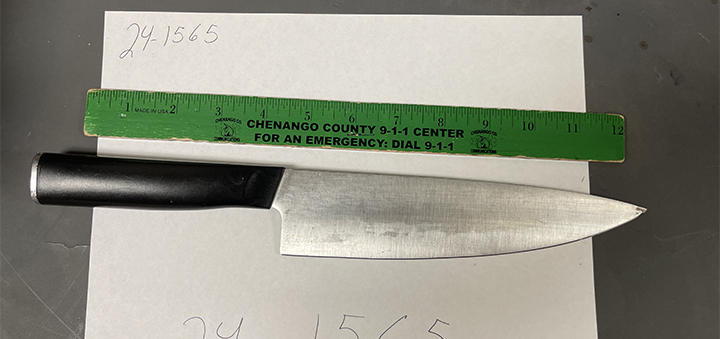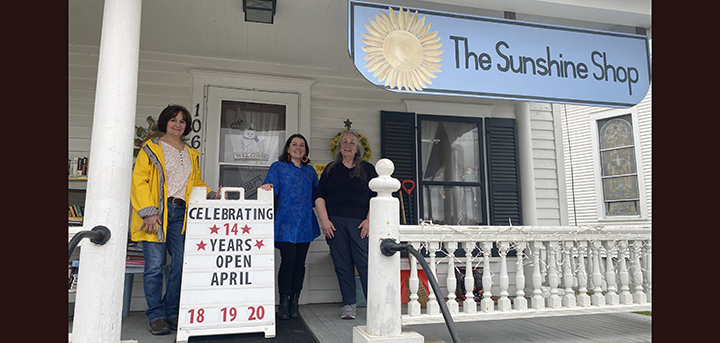The Avon Lady, Part Two
Published:
December 29th, 2016
By:
Shelly Reuben
Editor's Note: This is continued from The Avon Lady, also published in today's online edition.
This should explain why, when I was sometime going through my mother’s or Gram’s things after a funeral and unexpectedly came upon a bottle, box or tube with a red, green, or blue X on the back of the label, instead of bursting into tears, I would crack up.
Ada’s Avon always made us laugh.
It was against nature that a stone-faced old woman with a clammy, high white forehead, crooked wigs, and shapeless black dresses would slip behind the wheel of a bright red sports car, and tool down the road to peddle beauty.
Gram once told us about Ada’s youth. It was like something out of a Charles Dickens’ novel. She had lived, an only child, with two stern, over-protective, humorless parents. She wasn’t allowed to have friends or to date, wasn’t allowed to wear make-up or pretty dresses, wasn’t permitted to flirt, dance or … one may speculate … dream. When Ada was in her mid-thirties, both of her parents died, leaving her a considerable amount of money and a large Colonial house.
But Ada knew nothing of the world.
So when Gram offered her the apartment over the garage as a home, Ada sold the ancestral mansion, bought a canary yellow Buick convertible with white leather seats, and gratefully moved in.
The move didn’t surprise Gram.
All her life, she had been the closest thing to a friend that Ada had. Gram had anticipated the dependency. The yellow Buick, though, made Gram’s jaw drop, as did Ada’s surprising revelation, three weeks after she moved in, that she had just succeeded in qualifying to become an Avon Lady. That was how Ada always described her job. As though it were like graduating from college and being granted a knighthood at the same time.
Gram had said to her then, “Ada, you’re a damn fool.” But she also bought her first jar of Charisma Cologne Mist, and seeing the look of silly pride in Ada’s eyes, could never quite make herself stop buying Avon products from then on.
I lived with Ada, ate with her, laughed at her, and learned how to drive in her white Thunderbird. Year after year, I watched her drab, shapeless black dresses shuffle into Gram’s living room to read back issues of Town and Country. Even so, it is hard for me to believe that Ada, or anything about her, can have been real, and that everything I’ve just said about her could possibly be true.
I didn’t stop laughing at Ada until her stroke.
She was already in intensive care at the hospital by the time Seth called me. Seth is the man we hired to take care of the farm. After Gram died, Ada took over her kitchen, and when dinner time rolled around but Ada didn’t, Seth checked her apartment over the garage and found her lying on the floor by the telephone.
First he called for an ambulance. Then he called the newspaper for me. I was off poking into a schoolboard scandal and didn’t get the message until three hours later. When I arrived at the hospital, there was nothing I could do.
So I called Danny in New York. I knew he didn’t like Ada, so I hadn’t expected him to fly down, but she was dying, he was my brother, and he had helped me to code the migratory routes of her Avon bottles, so it was suddenly absolutely imperative to me that he know.
In a funny way, Ada was all the two of us had left of our childhoods. No matter what we thought about her brain power, Ada was a marker in our mutual and individual pasts. When she was gone, there would be no one else. And she was going fast.
That was a lonely, lonely feeling.
I didn’t know what to do with myself before Danny’s plane landed, so I drove out to the farm. And I didn’t know what to do at the farm, because I couldn’t concentrate on anything. So I paced from room to room, picking up magazines and throwing them down again, rearranging the spices on the spice rack, watering already water-logged begonias, and walking to the stable. When my jitters got so bad that Seth asked me to leave, since I was making the horses nervous, I wandered up the driveway and ultimately found myself in Ada’s apartment over the garage.
It wasn’t until I pushed through the door and walked inside that I realized I had only been up there once before, and that I had never been beyond the living room. When Ada was awake, she was always selling Avon or following Gram around. I knew that she returned to her own apartment at night, but that had no meaning to me, since I had hardly ever been up there. I didn’t really think of Ada’s apartment as a place, but more as a state of being. To my mind, Ada just sort of switched off at night. Like a light bulb.
So, it was strange to be up there now. Strange, but not unpleasant. Old-fashioned was the worst I could say about her living room. There was a lot of heavy Victorian furniture; two tired green arm chairs; faded floral rugs; a once-elegant Louis the Somethingth sofa with scrolled arms and legs; and wallpaper that was a rhapsody of trellised roses. The room was comfortable. Not ridiculous, like Ada.
Her bedroom was simple. On her dresser were two framed photographs of her parents, three wigs placed on Styrofoam heads, and a very nice set of silver hair brushes. The bed had a canopy. The eyelet bedspread was crisply ironed, clean, and white. The walls of the room were covered with framed certificates, acknowledging Ada’s prowess at selling Avon, and in her closet were several unopened boxes. They contained an iron, the two plastic raincoats I mentioned before, an electric blanket, and an automatic percolator. All prizes, I supposed, that Ada had won selling Avon.
I walked into the bathroom. Nothing out of the ordinary. Black and white tiles, an enormous claw-footed tub, a toilet, a sink, and a medicine cabinet. On the wall beside the medicine cabinet, though, was something I hadn’t expected. A framed, needlepoint poem:
Let me live in my house by the side of the road
Where the race of men go by;
They are good, they are bad, they are weak, they are strong,
Wise, foolish – so am I.
Then why should I sit in the scorner’s seat,
Or hurl the cynic’s ban?
Let me live in my house by the side of the road
And be a friend to man.
In the right-hand corner of the needlepoint was stitched the poet’s name: Sam Walter Foss.
I stood by the sink and read the poem again.
I wondered if Ada knew what it meant; I wondered why it was hanging on a wall in her bathroom; I wondered if she had regained consciousness; I wondered if she was dead. Then I couldn’t stand it anymore, raced downstairs, jumped into my car, and sped to the airport. Danny wasn’t due for another two hours, but I had to wait somewhere where nothing meant anything to me. Even so, as I sat in the terminal watching plane after plane disgorge passengers, a question kept poking at my brain: “Did Ada know that she was ridiculous?”
Did Ada know that she was ridiculous?
It was the poem … the note of gentle self-mockery in it … that made me wonder. And it wasn’t until I saw Danny approaching through the security gate that my mind finally relented and left me alone
When we got to the hospital, Ada’s doctor advised us that she was out of intensive care. Weak, but conscious. The left side of her body was paralyzed and she couldn’t talk, but she could see, hear, and understand. There was no chance of recovery, but she might remain stable for days, weeks, even years. And yes, it was a hell of a way to live. The doctor would allow us to see Ada for ten minutes, but then we had to leave. He would have a nurse show us to her room.
I took a deep breath.
We walked in.
For the first time and only time in my life, Ada did not look ridiculous. Her face was paler and bonier than I had expected, and she looked old. Not funny-Ada old. Old-people old. Dying old. Seeing her like that, her head supine on a pillow, thin tendrils of gray hair hanging sadly around her face, I felt a sudden sense of outrage. Ada would not want anyone to see her like this.
Where was her beaded black dress? Where was her lipstick? Where was her raven black wig?
I took a step forward and Ada saw me. She couldn’t move, but her eyes filled with tears. I rushed forward to take her hand. Her right hand. The one that wasn’t paralyzed. Ada squeezed my hand so hard, I knew how glad …how desperately glad ... she was to see us.
Danny stood by my side, and Ada’s eyes shifted back and forth between us. God, I wondered, how can she possibly love us, her tormentors, so much? Hadn’t she known that we’d always laughed at her? Can she possibly not have known?
As we sat there saying nothing, I felt a wild urge to dash out of the hospital, dive into my car, race to the farm, and speed back with one of Ada’s wigs. Ada would be my Samson. If Delilah had been able to reattach Samson’s hair, he would have gotten all his old strength back. Right? So if we put one of Ada’s wigs on her head, the helpless old woman in the hospital bed would disappear, and we’d get our foolish Ada back.
I would have done it, too. Except for the thought that a visitor might see a girlish wig framing Ada’s paralyzed face and laugh at her. That would be unacceptable. Ada was ours. I did not want anyone laughing who did not understand.
After ten minutes, the nurse made us leave.
“Let’s go to Haskell’s,” Danny said.
I gunned the gas pedal.
Over our fourth beer, my brother said, “Ever since you called me in New York, I’ve been thinking about Ada.”
“Me, too.”
“I’ve been thinking that perhaps, in her own ridiculous way, Ada was dignified.”
I wasn’t sure I agreed, so I said nothing.
“Not only dignified,” my brother went on, “but gutsy.” He dabbed a finger into a puddle of spilled beer on our tabletop and began to swirl it around. “By the time her parents died, Ada was already old and ugly.”
“Only thirty-five, Danny. And not ugly. Just …” I searched my mind for the right word. “Homely.”
He ignored me.
“So why did she do it, Jo Ellen?”
I had no idea what he was talking about.
“Why did she leave the comparative safety of Gram’s farm to enter the tumult and turbulence of Real Life? Where did she get the grit? How did she summons the courage?”
I knew that Danny didn’t expect an answer, so I waited.
Finally, he banged a fist against tabletop and announced, “Avon!”
As off-handed as he had been about her at the airport, he was deadly serious now.
“By becoming the Avon Lady,” Danny said, “Ada sidestepped the snubs which surely would have come from Gram’s neighbors, and she found another way into their homes. Over jars of eye goop and night cream, she could gossip with socialites, bank managers, manicurists, and librarians about Dorothy Widget’s facelift, Elvira Ludlow’s wedding, Judy Delford’s divorce, and why Jesse Bamberger’s husband, who never took a flying lesson in his life, was building an airplane in his barn.”
Danny’s eyes glistened, and the words kept tumbling out.
“For Ada, selling Avon was more than a job, it was a sacred mission. An act of faith. A holy crusade. Because she sold Avon, Ada had to make sales calls; because she made sales calls, Ada had to have a car; and because she needed a car, Ada could buy snazzy new convertibles every few years. It was only by selling Avon that Ada could live as a peer among peers. No longer the sorry spinster her parents had created, but a modern woman. A creature of the here and now. An entrepreneur. And…” Danny’s face beamed with the joy of revelation, “The wigs, Kiddo. The wigs! Before Avon, Ada never had an excuse to get all dolled up. To wear lipstick. To buy wigs. To…”
I was excited, too.
But only for a second. Then I remembered. Calmly and with a heavy heart, I said, “Courage or no courage, Danny. Wigs or no wigs, when Ada got ‘all dolled up,’ as you call it, she looked ridiculous.”
My brother shook his head.
“Maybe to the two miserable children who grew up tormenting her on a farm, but she didn’t look ridiculous to old Mrs. Arthritic Fingers, who had been living alone since her sister died; or to young Mrs. Newlywed, whose husband drove an eighteen-wheeler cross-country six days a the week; or to Miss Aged Beauty Queen, desperate to brag to someone about singing My Way in a beauty pageant forty-years-ago. To those solitary souls, the Avon Lady was a godsend, as eager to listen to their stories as a child hearing a fairytale for the first time.”
Danny pushed aside his beer mug, dropped his elbows on the table, and locked eyes with me.
“When Ada’s clients talked, Ada felt alive. Through them, she was able to experience everything that she missed growing up. She devoured their photo albums, their newspaper clippings, and the drawings their grandchildren made of polka dot houses and three-legged cows. Ada’s customers didn’t care if she was selling lipstick, hand lotion, or silly pink-bowed bottles of perfume. And it didn’t matter if they ever even used what they bought, because what they got from the Avon Lady, and what they gave back to Ada was...”
Danny paused.
I hurriedly filled in the blank.
“More precious than gold?”
My brother shrugged and said softly, “Sometimes, trite is true.”
We were silent for a few minutes. Then, I was struck by a thought.
“Danny,” I asked. “Were you ever in her apartment?”
“Dozens of times.”
I was surprised.
“Why?”
“Ada was too dumb to change a light bulb, so I had to replace the one over the sink in her bathroom a few times a year.”
“Oh,” I said happily. “Then you saw it, too.”
“Saw what?””
“The poem.”
“What poem?”
“‘Let me live in my house by the side of the road.’”
Danny nodded. He recited, “‘Let me live in my house by the side of the road … where the race of men go by.’”
I clapped my hands. I was delighted. I was disheartened. I was happy. I was glum.
“Oh, Danny,” I said. “This is all so ludicrous. And so sad. What are you feeling right now?”
“Right this minute? I’m feeling sorry that I’ll never see one of Ada’s wigs floating in a big bowl of gumbo soup.”
I was shocked. “Just a few seconds ago, you were praising Ada’s dignity and courage.”
“I was.”
“Yet you meant what you just said about the soup?”
“Absolutely.”
“If Ada lives, Danny, will you still laugh at her?”
“Only if she recovers completely.”
“What about the poem in her bathroom? Do you think it was Ada’s credo?”
Danny shook his head.
“I’d be more inclined to think that it was Avon’s credo.”
I sighed.
“I’ll call the hospital,” I said.
Ada died sometime between our fourth and fifth beers. My brother decided to fly home that night. I drove him to the airport.
“Will you come back for Christmas?” I asked.
“Only if you promise not to make me get on one of those damn horses.”
“Hell no. There’s nothing like a brisk ride on a cold winter morning. You’ll ride all right. Roll down your window, Danny.”
He rolled down the window. Then he stretched out his legs as far forward as the car would permit and added, “I’ve been doing some more thinking.”
“About Ada?”
“Uh huh. I think we should bury her with all of her certificates and wigs. I think she should be wearing her plastic raincoat, and…”
““Danny!”
“Egyptians buried Pharaohs with all their loot because they knew the old guys would need it on the other side. Ada deserves at least as good a send-off.”
“That’s not funny.”
He reached over, patted my hand, and said, “Okay, Kiddo. Maybe just a small tube of shower gel with a red X in the left-hand corner.”
I grunted and pulled into a space near the entrance to the airport parking lot.
We got out of the car, but neither of us was wanted the evening to end. So we leaned against the front bumper and looked up. Danny closed his eyes and inhaled deeply.
“Winter honey suckle and exhaust fumes,” he said. “Not necessarily a bad mix.”
It was a nice feeling to be there with my brother. Jets zoomed back and forth overhead. A soft Virginia breeze ruffled our hair.
A little turbulence. A little peace.
Danny opened his eyes. He glanced at his watch, pushed away from the car, and said, “Time to go.”
We started across the parking lot.
“Know what?” He said. We were walking slowly.
“What?”
“I’m going to miss Ada.”
I sighed. “She was a fool.”
“A damn fool, but…” and then he began to quote from the poem. “‘Why should I sit in the scorner’s seat?’”
Our eyes met. I continued, “‘…or hurl the cynic’s ban?’”
Danny grinned.
“‘Let me live in my house by the side of the road…’”
I grinned, too.
“‘And be a friend to man.’”
Copyright © Shelly Reuben, 2016
Shelly Reuben’s books have been nominated for Edgar, Prometheus, and Falcon awards. For more about her writing, visit www.shellyreuben.com.
Author: Shelly Reuben - More From This Author
Comments
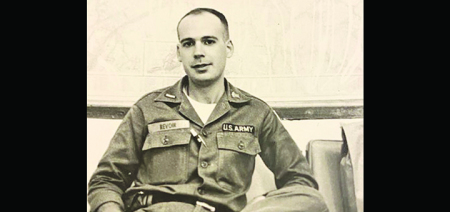
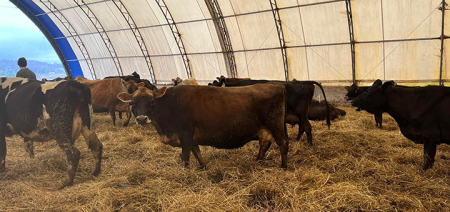

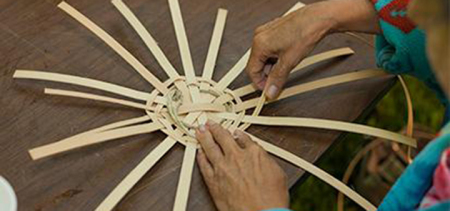

(1).jpg)
